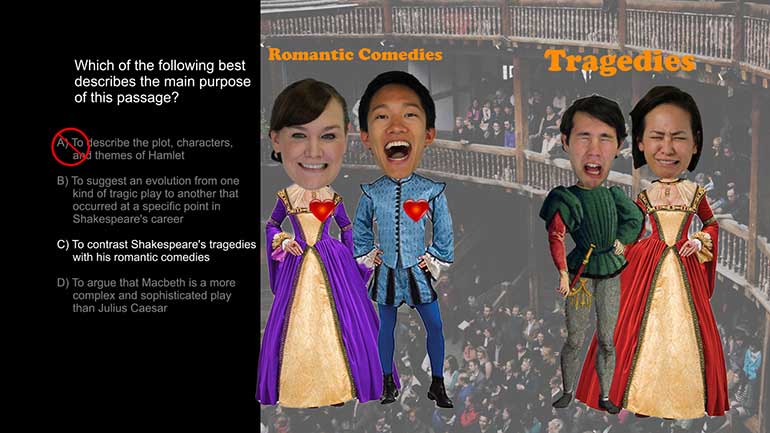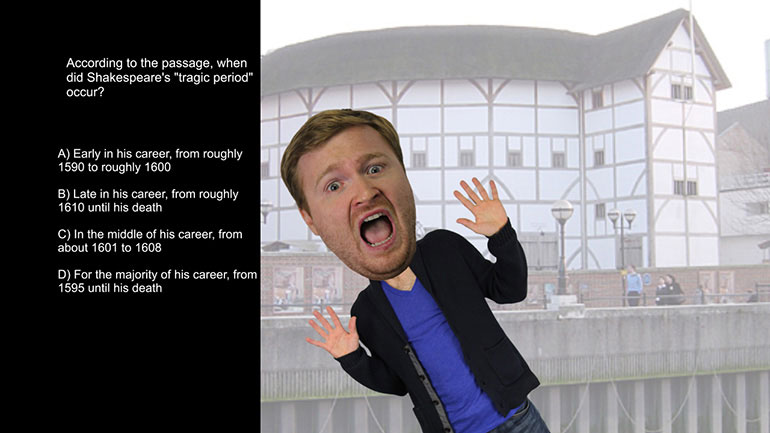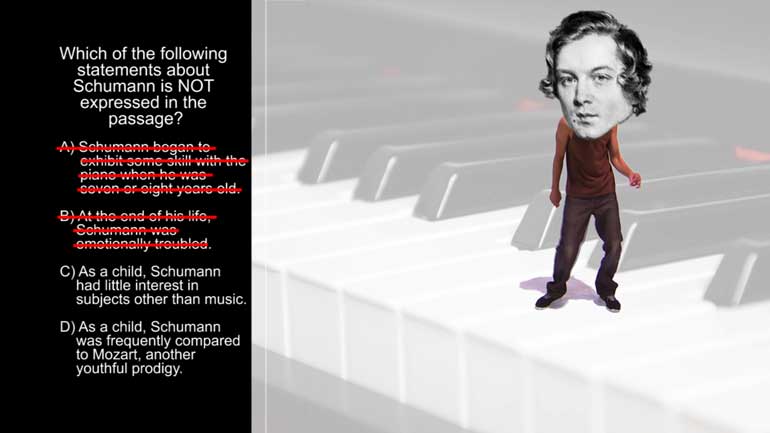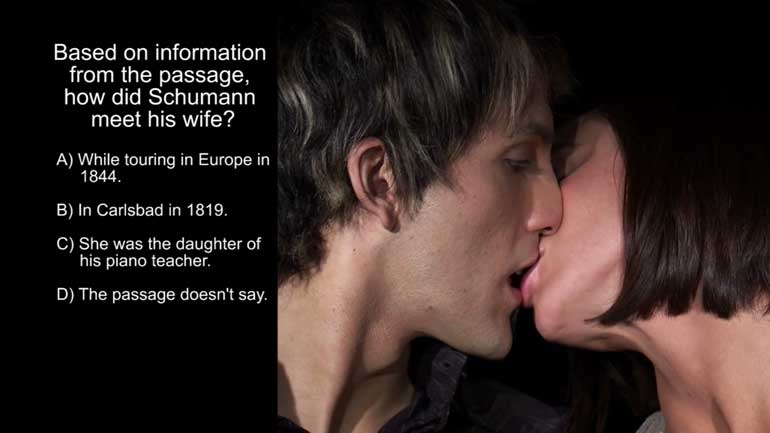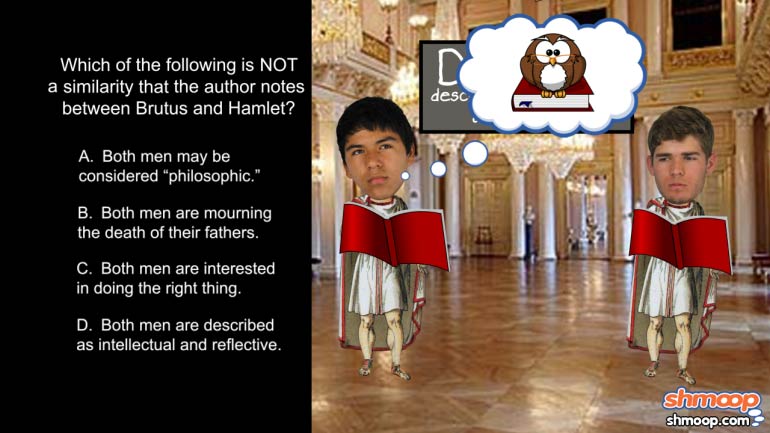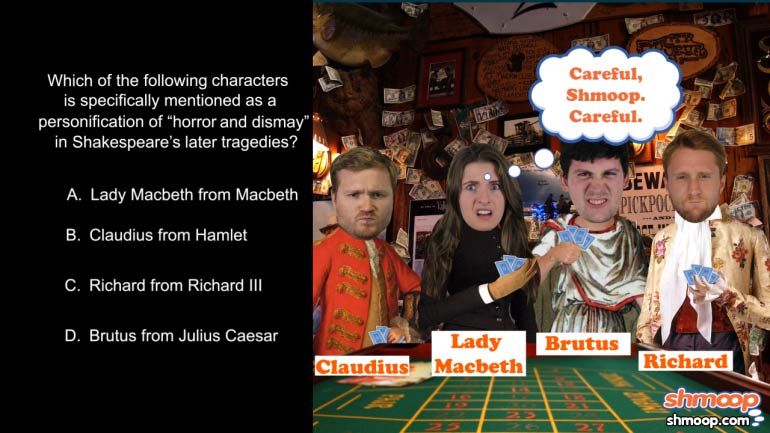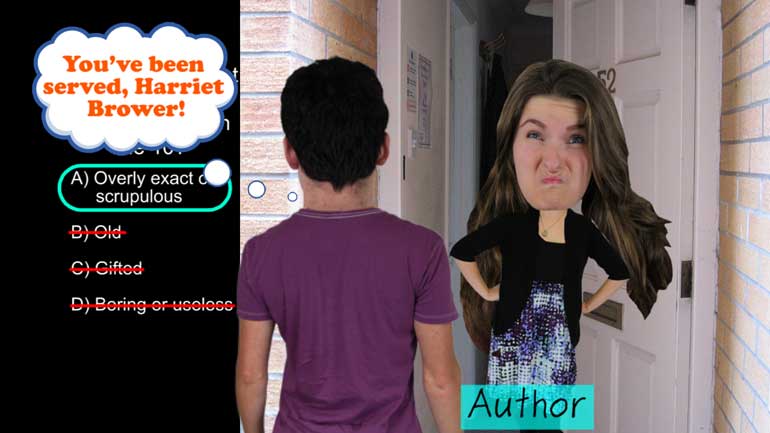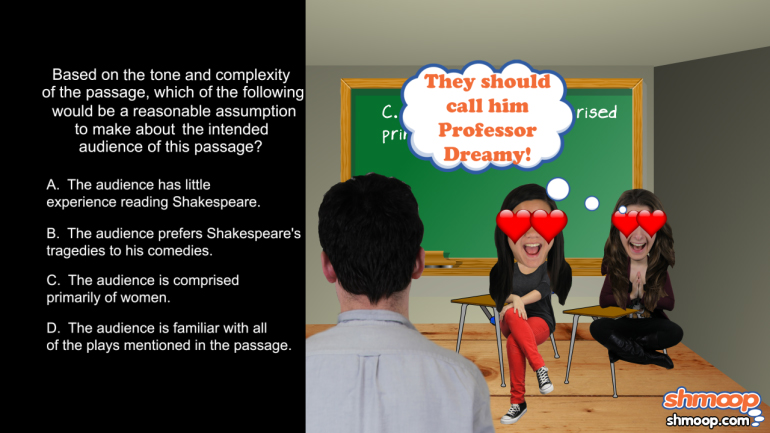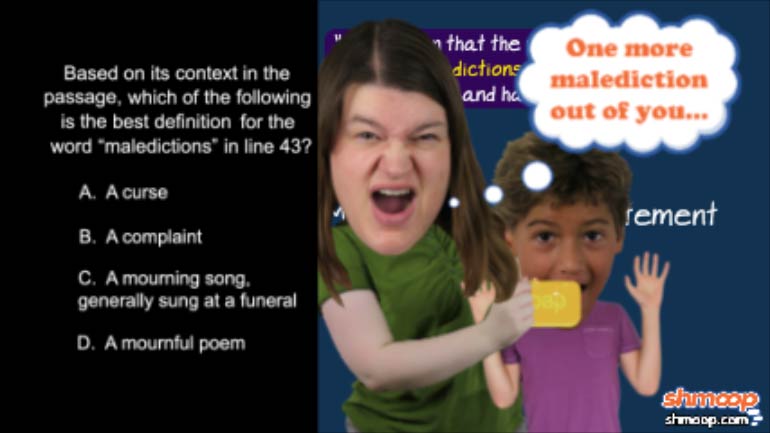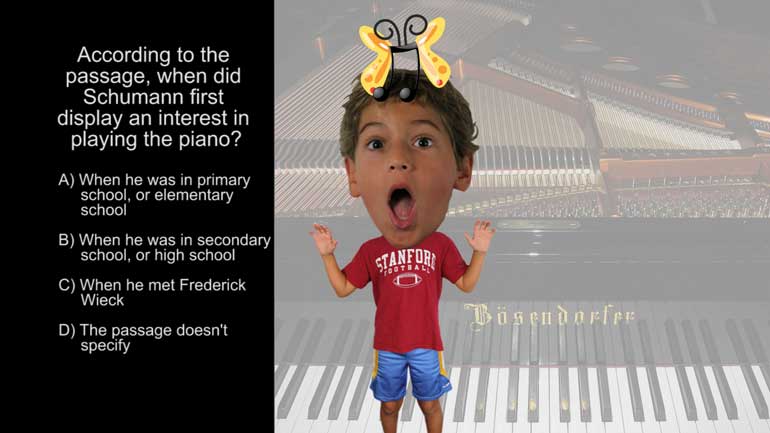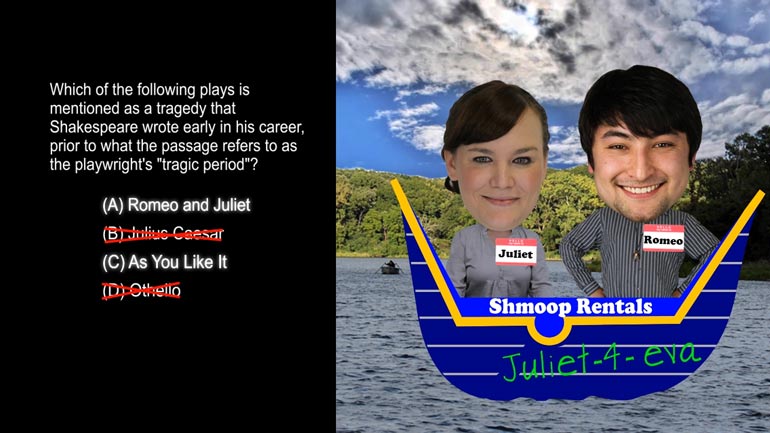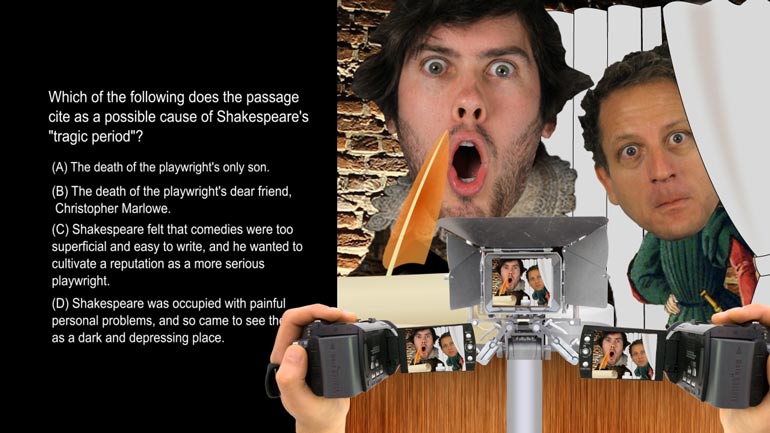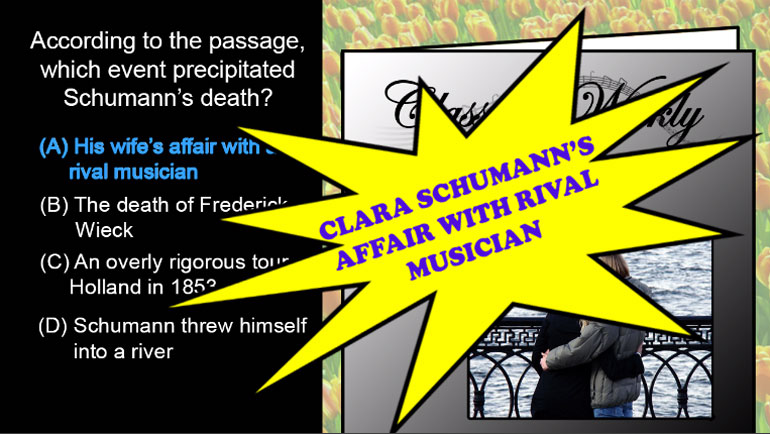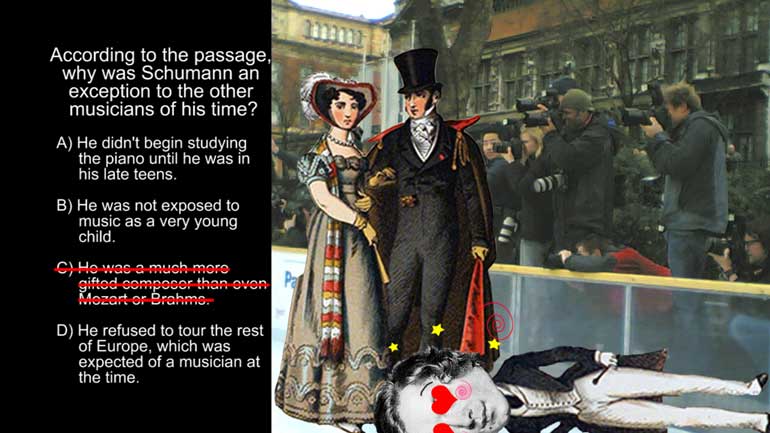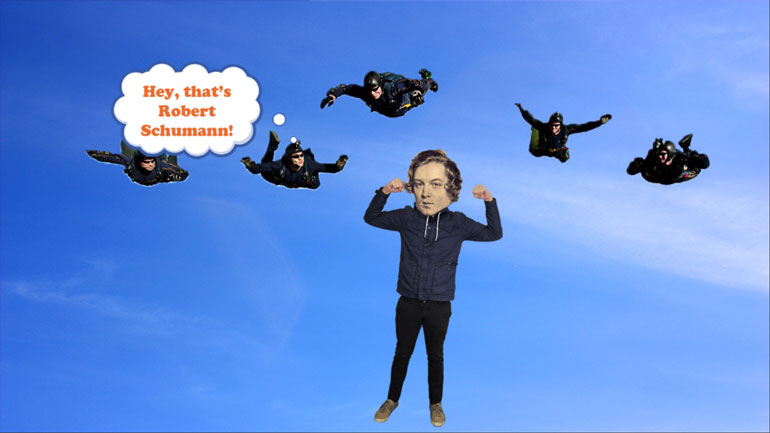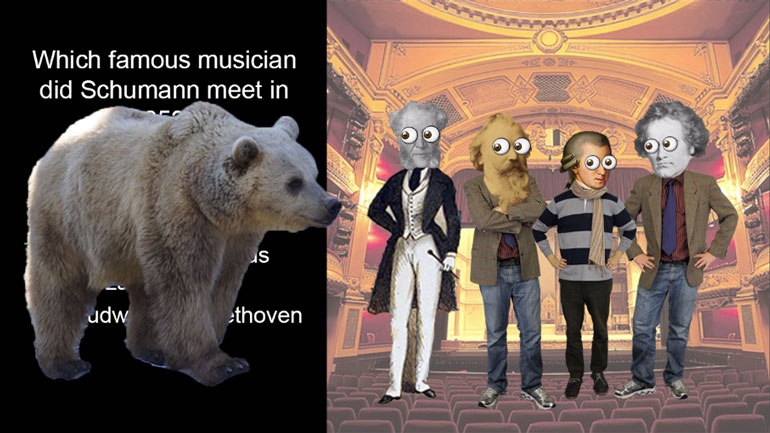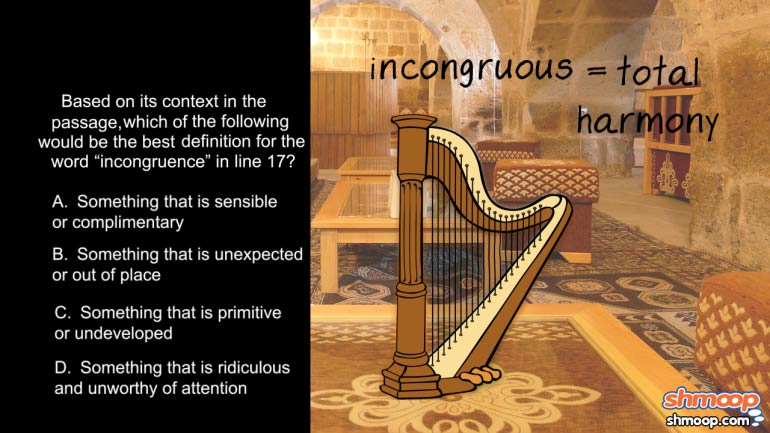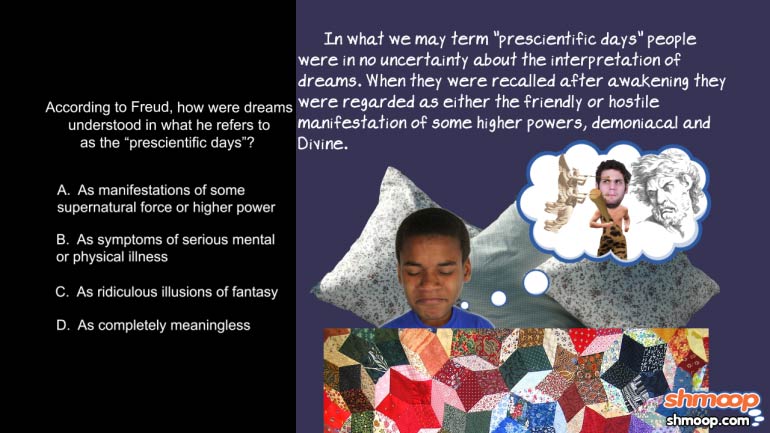ShmoopTube
Where Monty Python meets your 10th grade teacher.
Search Thousands of Shmoop Videos
Humanities Passage Videos 20 videos
ACT Reading: Humanities Passage Drill 1, Problem 10. Which of the following is the best explanation of the term "tragedy of thought" in line 58?
ACT Reading: Humanities Passage Drill 1, Problem 1. Which of the following best describes the main purpose of this passage?
ACT Reading: Humanities Passage Drill 1, Problem 2. What distinction does the passage make between Hamlet and Julius Caesar and the other play...
ACT Reading 2.4 Humanities Passage 201 Views
Share It!
Description:
ACT Reading 2.4 Humanities Passage. Which of the following is the best definition for the word "pedantic"?
- Foreign Language / Arabic Subtitled
- Foreign Language / Chinese Subtitled
- Foreign Language / Korean Subtitled
- Foreign Language / Spanish Subtitled
- Reading / Meaning of Words from Context
- Product Type / ACT Reading
- Literary Vocabulary / Determine meaning of words and phrases: Informational text
- Literary Vocabulary / Determine meaning of words and phrases: Informational Text
- ACT Reading / Meanings of Words From Context
Transcript
- 00:04
Here's your Shmoop du jour, brought to you by Piano Teachers. You have to give them props
- 00:08
for not totally losing it every time they hear the song "Ladybird."
- 00:33
Which of the following is the best definition for the word "pedantic" in line 10?
- 00:40
If we don't already know the meaning of "pedantic," a little detective work will
- 00:43
help us narrow down our options.
Full Transcript
- 00:46
We wish we could just hire Magnum P.I., but he got canceled years ago.
- 00:49
Ask your parents about him.
- 00:50
In lieu of Magnum's help, we'll just have to check out the context in and around line 10.
- 00:55
We know from the passage that "pedantic" is used to describe Schumann's first piano
- 00:59
teacher, whose teaching is described as "inadequate."
- 01:02
The prefix "in" means "not" in this case, letting us know that this guy was not
- 01:07
adequate at all. So basically the dude wasn't winning any piano teacher of the year awards.
- 01:11
Knowing this allows us to nix choice (C). There's no way the author would describe
- 01:14
Schumann's first teacher in a positive way, and she certainly wouldn't call him "gifted."
- 01:18
Now let's see what choice (B) has up its sleeves...
- 01:21
Well, yeah, Schumann's teacher was old. We know this because the line in the passage
- 01:26
is: an "old, pedantic professor."
- 01:29
If "pedantic" meant "old," however, this would be a pretty unimaginative sentence.
- 01:34
It'd be like calling the guy an "old old professor."
- 01:38
We'll give the author the benefit of the doubt and assume she knows how to avoid redundancy.
- 01:41
Choice (B) is out of consideration.
- 01:43
Choices (A) and (D) are a little harder to choose between. Neither description is particularly
- 01:48
positive, which matches up with the idea that the teacher was "inadequate."
- 01:52
We're leaning toward choice (A), however. If the teacher were completely "useless,"
- 01:56
as (D) says, then we doubt Schumann would've been able to compose those dances at 7 or 8 years old.
- 02:01
"Pedantic" also sounds a whole lot like the word "pedagogue," which describes
- 02:05
a strict, super by-the-book teacher. This seals the deal for us, so we dub (A) the correct answer.
- 02:10
If we were this poor piano teacher, we'd sue the author for slander.
Related Videos
ACT Reading 1.5 Social Science Passage. Based on its context in the passage, which of the following would be the best definition for the word...
ACT Reading: Humanities Passage Drill 1, Problem 1. Which of the following best describes the main purpose of this passage?
ACT Reading: Natural Science Passage Drill 1, Problem 1. Which of the following best describes the overall purpose of this passage?
ACT Reading Prose Fiction Drill 1, Problem 1. Which of the following best describes the overall purpose of this passage?
ACT Reading: Social Science Passage Drill 1, Problem 1. According to Freud, how were dreams understood in what he refers to as the "prescienti...

